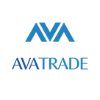Discover the best trading apps for iPhone in our exclusive ranking. Focused on user experience and technology integration, this list is perfect for traders who demand mobility without compromising on features or performance.
BEST FUTURES BROKERS IN NIGERIA
This ranking review the best brokers for futures trading in Nigeria — the kind market wey require sense, discipline, and small courage. We look basic things like safety of funds, platform design, clear cost structure, and active support. Futures-specific aspects like margin rules, contract diversity, and speed of execution na key. Nigerians fit use these brokers explore derivative markets — but make dem plan well before jumping in.

Ranking Methodology
To compile the ranking, we rely on a professional criterion that follows these steps:
We test the platforms based on several basic parameters (see list).
We test the platforms based on ranking-specific parameters.
We ensure the results are accurate (consistency and absence of outliers).
We verify on social media and forums that our parameters are socially sound and that no relevant negative reviews exist.
We present and publish the ranking.
Basic Testing Parameters for Apps Included in the Ranking
They allow accounts to be opened by local clients; meaning we exclude platforms not available in certain countries.
Regulatory compliance and security.
Transparency, reputation, and data protection.
Total costs (commissions, spreads, non-trading fees, deposits/withdrawals).
User experience (UX/UI), stability, and performance (uptime, latency).
Platform and tools (charts, alerts, backtesting, mobile, desktop, API).
Execution and liquidity (order quality, slippage, depth).
Customer support (languages, coverage, response times).
Education and resources (guides, research, demos, simulators).
Specific Parameters for the Futures Ranking
Access to futures contracts on recognised exchanges (CME, ICE, Eurex, etc.).
Coverage of futures on indices, commodities, currencies, and interest rates.
Margin requirements and leverage available (levels, flexibility, margin calls).
Specific trading costs in futures (spreads, exchange fees, rollover).
Execution quality and market depth (volume, liquidity, slippage).
Availability of advanced orders (stop, OCO, trailing stop, bracket orders).
Risk management tools specific to futures (margin analysis, volatility scenarios).
Access to historical data and backtesting for futures strategies.
How to open an Investment Account
In Nigeria, opening an investment account is quick once you’ve chosen a provider. The process applies whether you want to invest in stocks, ETFs, bonds, crypto or real estate.
Go to the official website: Click “Open account” or “Get started”.
Provide your details: Name, email, phone and country. You’ll need a Nigerian ID (NIN, voter’s card, or passport) plus proof of address such as an electricity bill from Ikeja Electric or a bank statement issued in the last 3 months.
Await approval: Some are instant, others may take a few days.
Set up your account: Adjust settings to your risk profile once approved.
Fund your account: Deposit via card, bank transfer or mobile wallets.
And you’re set to start investing.
YOU MAY ALSO BE INTERESTED









